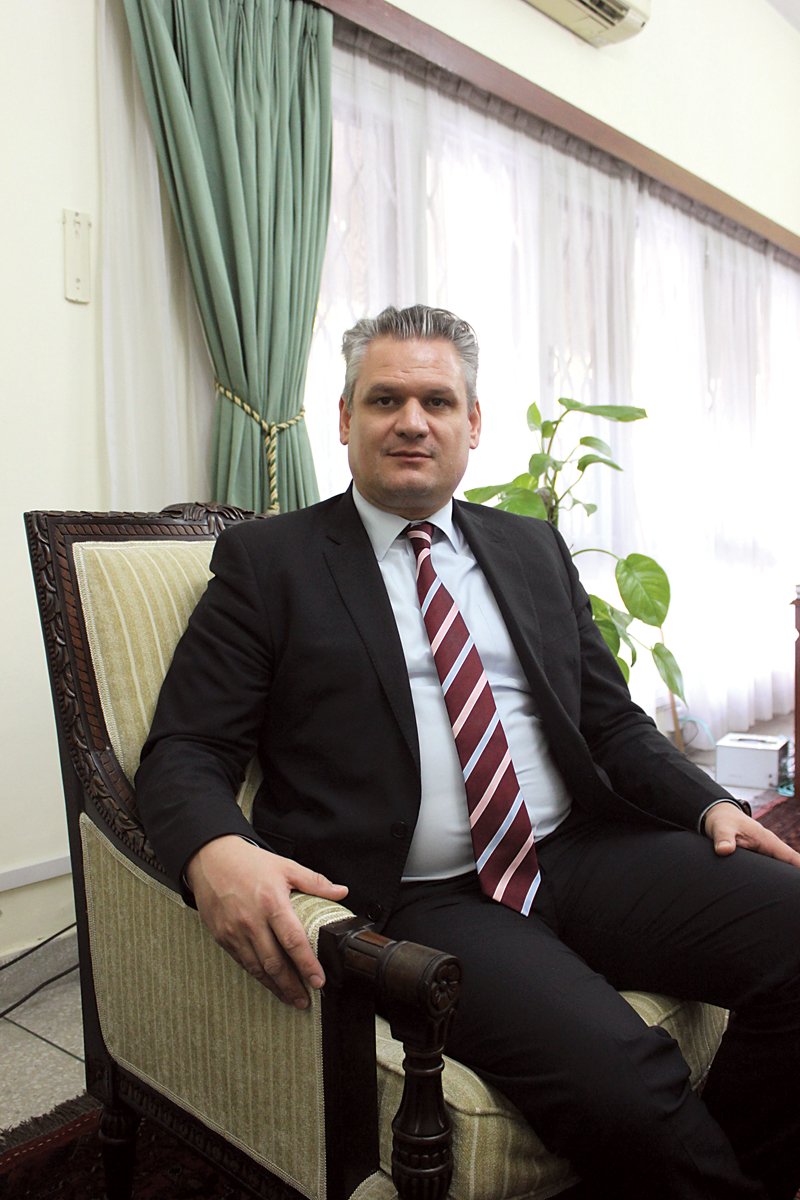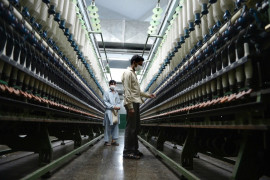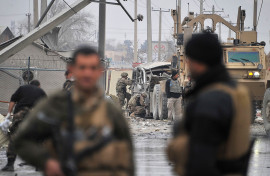
ISLAMABAD: Hungary views Pakistan as an important partner in its bid to build stronger ties with the Asian nations, according to a top Hungarian government official.
Szabolcs Takacs, the Hungarian Deputy State Secretary for Security Policy and the Political Director of the Hungarian Foreign Ministry, was speaking with The Express Tribune during a brief visit to Pakistan.
The Hungarian official discussed potential opportunities for Pak-Hungary collaboration.
During his visit, Takacs said he met with the Pakistani foreign secretary Aizaz Ahmed Chaudhry, officials from the ministry of petroleum and other foreign ministry officials dealing with Europe, Asia and Afghanistan.
He said officials from the two countries meet annually but now they are trying to “elevate” the meetings to a higher level.
“We would like to realise high-level visits this year,” Takacs said. “We would like Sartaj Aziz to visit Hungary.”
Aziz, the Pakistani Prime Minister’s special adviser met with his Hungarian counterpart at the UN General Assembly in September 2013, according to Takacs.
“Eastern opening”
Takacs said the Hungarian government announced a new foreign policy doctrine in 2010called “eastern opening”, through which the country hopes to “relaunch and rejuvenate” ties with countries around the world, especially in Asia and the middle east.
It is a divergence from Hungary’s initial focus to establish itself in Europe after the collapse of the Soviet Union. Now, as a long-standing member of North Atlantic Treaty Organisation (NATO) and the European Union (EU), the central European country is looking to increase its sociopolitical and economic activities through eastward partnerships.
“Pakistan is definitely one such partner,” Takacs said.
He said he believes the Pakistani officials understood Hungary’s “genuine commitment to the eastern opening policy” during his meetings with them.
“They understand it is a mid-term or long-term project and if we are both consistent in continuing down this road of cooperation, we need to make it more substantive in terms of trade, investment, education and people-to-people interaction,” he said.
One such substantive attempt is a visit of Pakistani business delegation to Hungary during the second week of February, Takacs said.
GPS Plus dividend
The development follows from the EU granting Pakistani companies duty-free access to the European market under its Generalised System of Preferences (GSP) Plus status in December 2013.
Takacs said the GSP plus status will increase opportunities for businesses but public awareness should be raised about the market access by engaging the business community.
The political director said he handed over a draft of cooperation between the chambers of commerce of Hungary and Pakistan to Pakistani authorities and is expecting a counter-draft from Pakistan.
Other areas of Pak-Hungary include technology transfer, agriculture and pharmaceuticals, but most notably, the energy sector, according to the Hungarian official.
“We have a comprehensive and deep cooperation in the energy field,” Takacs said.
MOL Pakistan, a Hungarian multinational company, has been active in the oil-and-gas sector in Pakistan for the past 15 years.
Takacs said the Hungarian government, which has a 25 per cent stake in MOL, is committed to further enhancing the company’s activities in Pakistan, which will be a “win-win” situation for both countries.
The Central European country is looking to establish cultural and education ties with Pakistan, as well. This includes the Hungarian government’s decision to provide 80 grants for higher education to Pakistani students, Takacs said.
Post drawdown
With NATO troops expected to complete a military drawdown from Afghanistan by the summer 2014, Pakistan is perhaps the most important country in the region when it comes to the post-2014 Afghanistan situation, Takacs said.
Pursuing a political solution for Afghanistan, he said Hungary and the international community is appreciative of Pakistan’s efforts and they expect it to build stronger ties with its neighbours for regional stability.
“My message to our partners in Pakistan was that regional cooperation is of utmost importance, it is unavoidable,” he said.
Takacs also acknowledged the May 2013 transition of government in Pakistan and said it was not only a democratic example for regional countries, but also beneficial for the Pakistan’s own socioeconomic development.
The eastern opening policy will remain undisturbed by the results of Hungary’s upcoming general elections, Takacs said.
“I believe if we jointly identify and address areas where there is a genuine possibility (of bilateral cooperation), then in the coming years, the Hungary-Pakistan relationship will further flourish,” Takacs said
Published in The Express Tribune, February 24th, 2014.


































































COMMENTS
Comments are moderated and generally will be posted if they are on-topic and not abusive.
For more information, please see our Comments FAQ